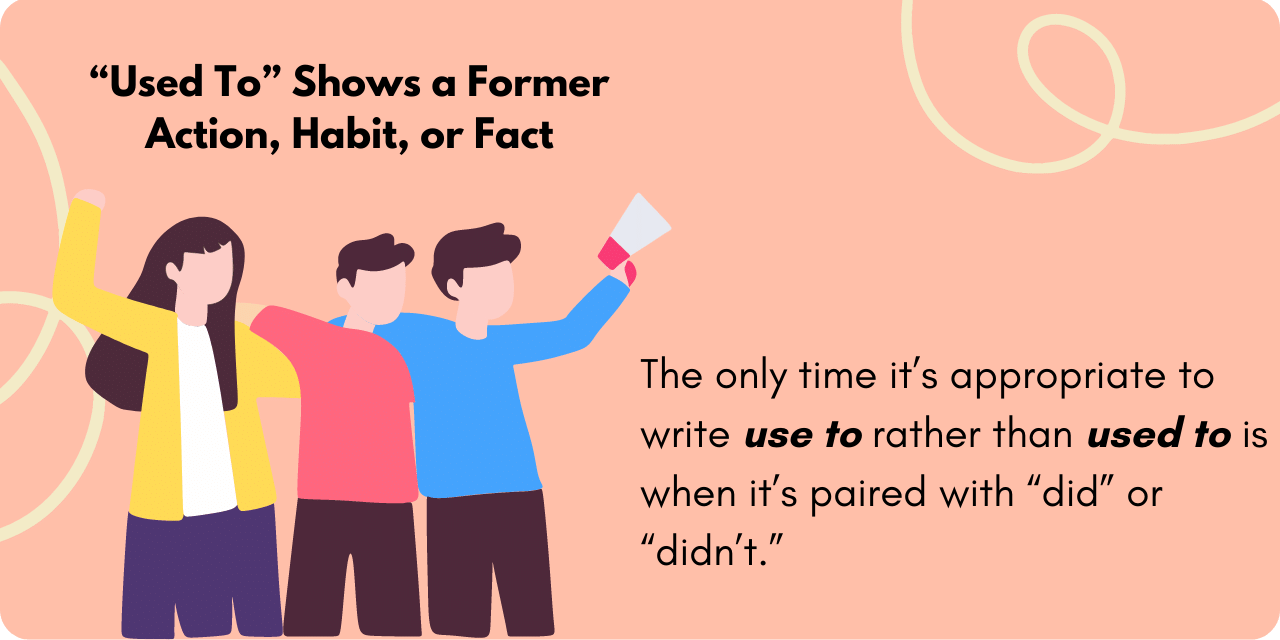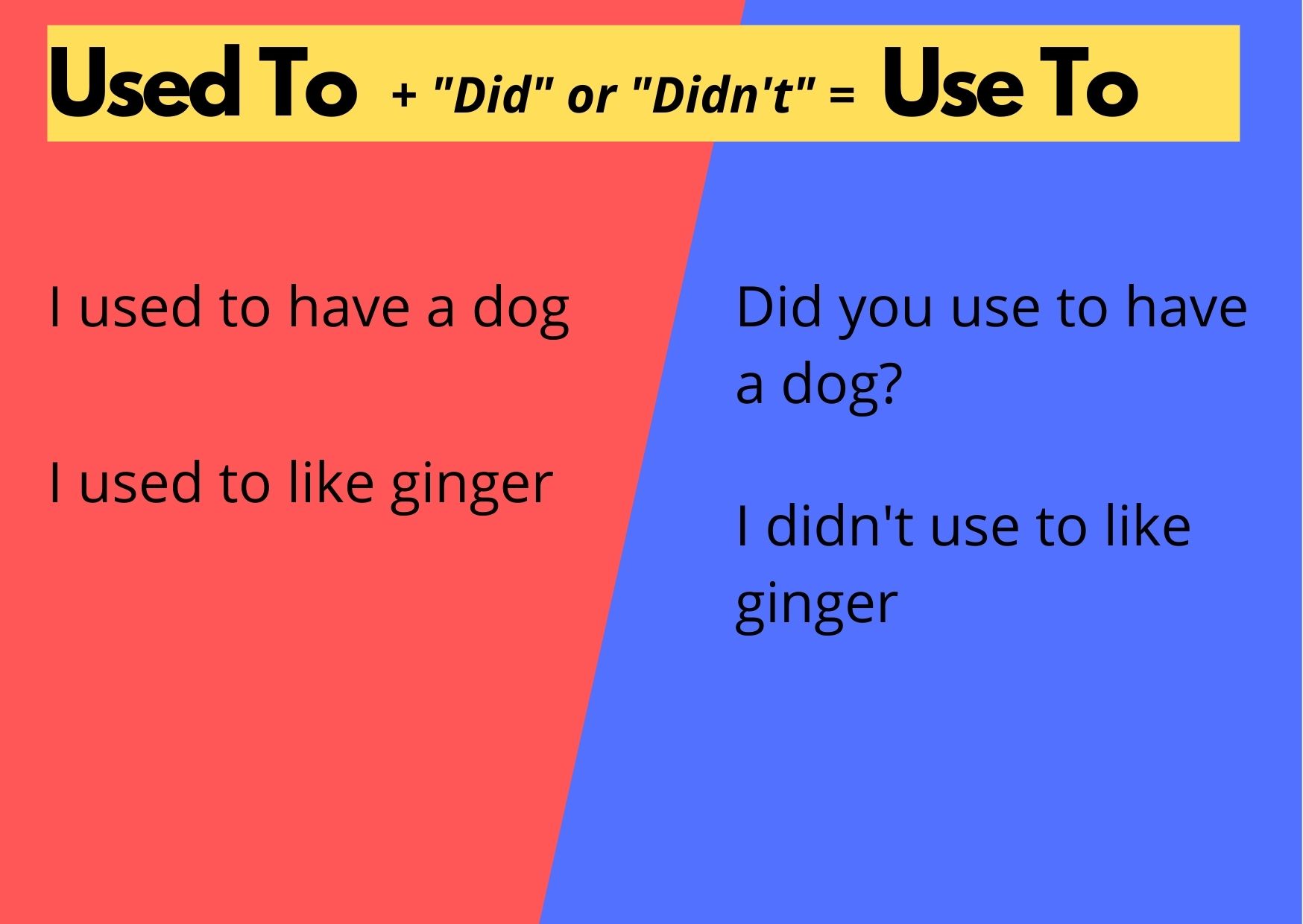If you frequently mix up the phrases use to and used to, don’t feel bad–it’s a pretty common mistake! Used to is a phrase that means “accustomed or habituated to,” and it can also refer to something from the past that no longer holds true. Both use to and used to are frequently used in English grammar as modal verb phrases.

“Used To” Shows a Former Action, Habit, or Fact
The phrase used to can also be used to mean “formerly.” It can indicate that something happened in the past but no longer takes place. There was a corresponding present tense form, use to, centuries in the past, but nowadays we only use used to.
- The convenience store used to be at the corner of Main and Third.
- Steve used to exercise every morning, but he’s been too busy to keep up with his workout routine.
- My mother used to ride a donkey to school.
The only time it’s appropriate to write use to rather than used to with this meaning is when it’s paired with “did” or “didn’t.” This is because “did” or “didn’t” assumes the obligation of reflecting the past tense.
- Did your mother use to take her donkey to school?
- My mother didn’t use to take her donkey to school every day, but she did on Fridays.
If the example above feels too formal for you, you can rewrite the sentence without it.
- My mother didn’t take her donkey to school every day, but she did on Fridays.

”Use” Followed by an Infinitive
Note that both use and used can correctly appear before the word to when it’s part of the infinitive of a second verb. That might sound confusing, so we’ll give you some examples:
- What do you use to decorate cakes?
- Buttercream frosting was used to frost the bakery’s cakes.
As you can see, whether you use use to or used to depends on whether you’re speaking in the present or past tense.
Related: Should you use split infinitives?
“Use To” vs. “Used To” as a Synonym for “Accustomed To”
When you want to say something that means “accustomed to” or “habituated to,” always use used to rather than use to.
- Incorrect: Horseback riding used to be really scary to me, but now I’m use to it.
- Correct: Horseback riding used to be really scary to me, but now I’m used to it.
Why is it that people tend to get confused between these two phrases? Well, it has a lot to do with our ear’s influence over our writing. Think about the way you say used to aloud. The letter “d” in “used” and the letter “t” in “to” blend together, becoming one consonant sound. In many cases, we misspell words because of the way they sound in our mind’s ear. A similar mistake is often made with the phrase “supposed to.”
“Get Used to It”—How To Use It Correctly
Look at the heading above. It involves the verb “to be” plus the term used to to show that the speaker is accustomed to something. A related construction is “get” + used to, which is a commonly-used phrase that means “become accustomed to.” When you use this construction, it implies that the process of habituation is ongoing. In this case, using the term use to is incorrect.
- Incorrect: Learning to swim has been challenging for me, but I will get use to it.
- Correct: Learning to swim has been challenging for me, but I will get used to it.
Always avoid writing “I am use to it” and “Get use to it.” Instead, stick to the correct phrases: “I am used to it” and “Get used to it.”
There you have it–the difference between use to and used to!






